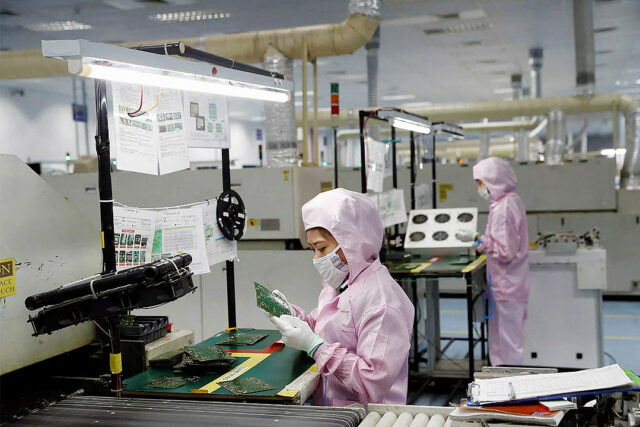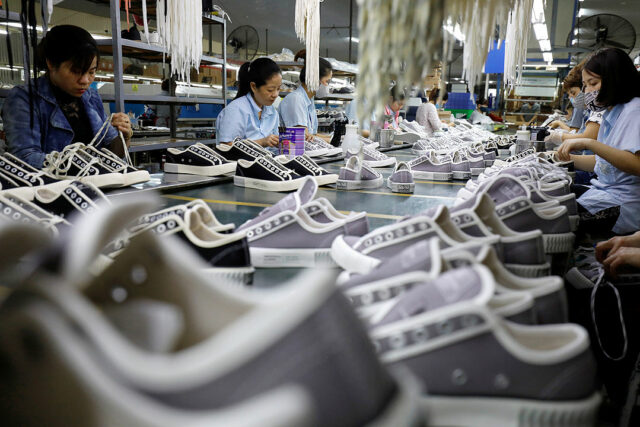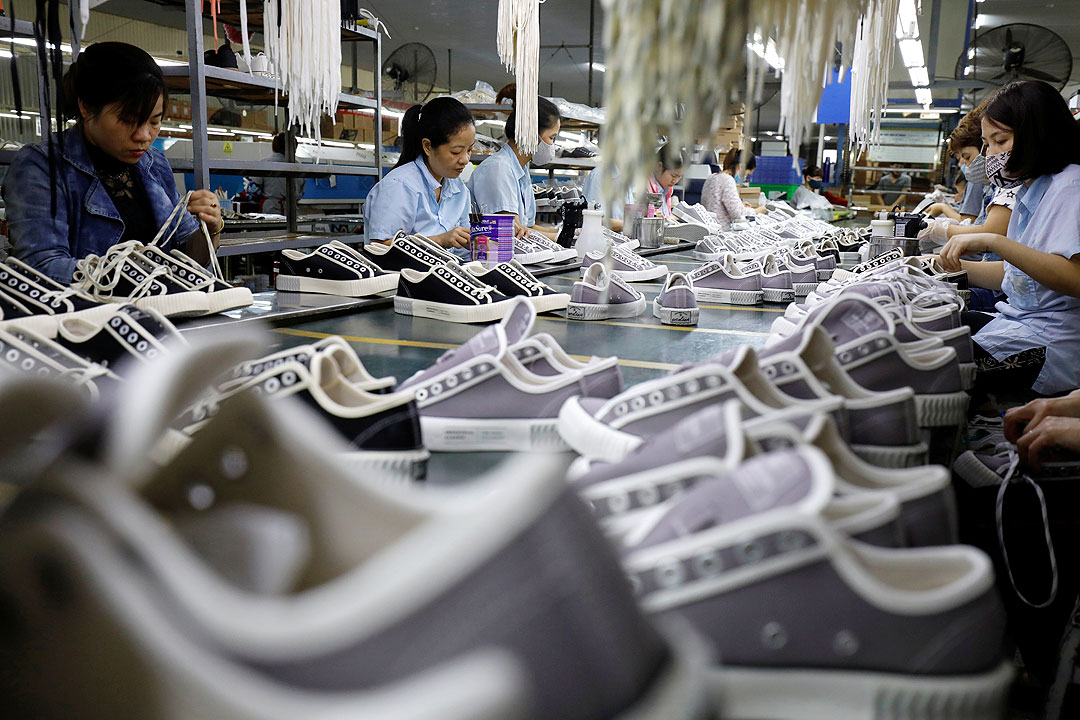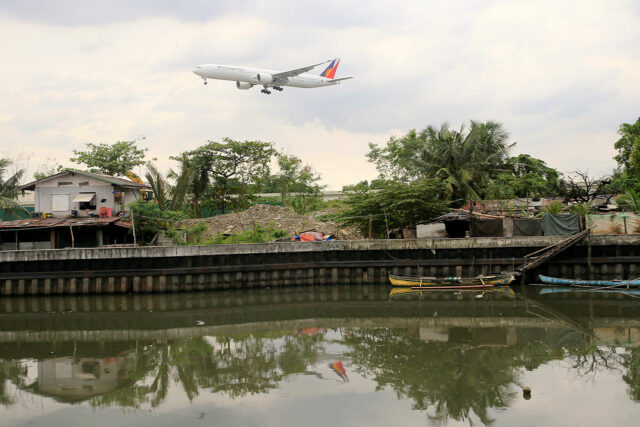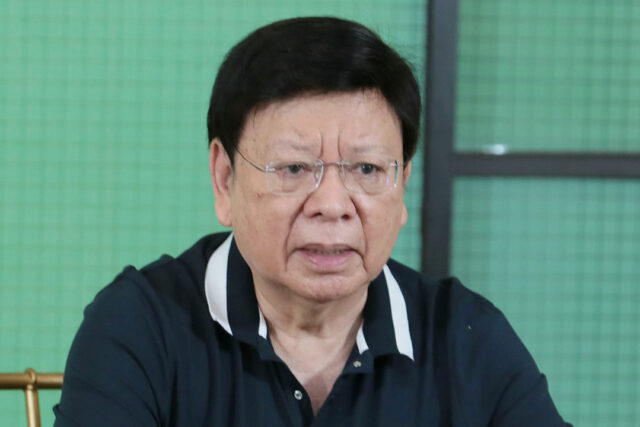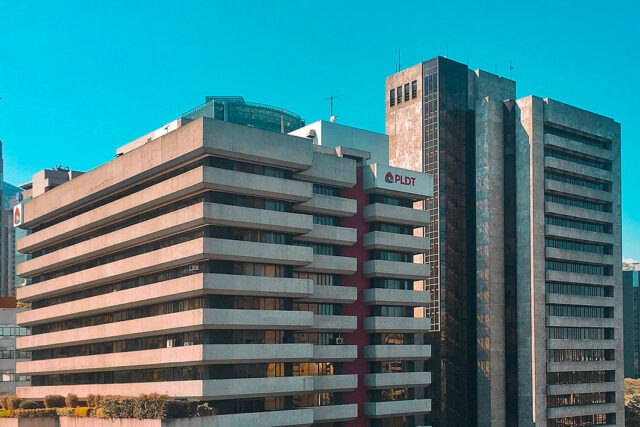By Alyssa Nicole O. Tan, Reporter
THE PHILIPPINE Senate deferred the ratification of the Regional Comprehensive Economic Partnership (RCEP), after some senators voiced concern over the lack of safeguards for the agriculture sector.
Senators on Wednesday adjourned its last session without taking a vote on the RCEP, touted as the world’s biggest trade agreement since it represents 30% of the global gross domestic product (GDP).
RCEP, which entered into force on Jan. 1, is a trade agreement involving Australia, China, Japan, South Korea, New Zealand and the 10 members of the Association of Southeast Asian Nations (ASEAN).
Aside from the Philippines, only two other countries have not yet ratified the RCEP — Indonesia and Myanmar.
It will now be up to the 19th Congress to tackle the RCEP when the session opens in late July.
Earlier on Wednesday, the Financial Executives Institute of the Philippines (FINEX), the Makati Business Club (MBC), and the Management Association of the Philippines (MAP) once again appealed to the Senate to ratify the Philippines’ membership in the RCEP.
“Exclusion from RCEP would be immensely costly to our economy and our people. We can anticipate a significant decline in our exports to RCEP countries, which now account for nearly two-thirds (64%) of our total exports, as trade with us will logically be diverted to fellow members,” the business groups said.
Without RCEP membership, the business groups said the Philippines would become “even more unattractive to job-creating investments than we already are.”
“Our membership could attract more foreign investments into the country from firms wishing to produce and sell to the large RCEP market,” they added.
President-elect Ferdinand R. Marcos, Jr. earlier said he wants a review of the RCEP to determine whether the agriculture sector is adequately protected.
Some senators had raised concerns over the RCEP, citing the lack of safeguards for the agriculture sector.
“We have an incoming government who has expressed his concern about being able to review RCEP. We believe that government intervention for the agriculture sector is critical for us to be able to ensure that our entry into RCEP will not undermine our agriculture sector and will not further weaken our local manufacturers, produces, our farmers, and our fisherfolk,” Senator Francis N. Pangilinan said during plenary debates late Tuesday.
“To my mind, there is no reason why we should not enter RCEP at a time when we are ready, and another 18 months, I hope, would be a set target, a deadline, so that the government will be compelled by June 2023,” he added.
Senator Ana Theresia “Risa” N. Hontiveros-Baraquel also said the country is not yet ready for RCEP.
“With our market access right now, we can continue to trade as we do today even if we do not ratify RCEP… RCEP is predicted to worsen the Philippines’ trade balance which would cause job losses and $58 million per year in tariff revenue losses,” she said at a press conference on Wednesday.
‘TREMENDOUS’ COST
Senate Foreign Relations Committee Chair Senator Aquilino Martin L. Pimentel III on Tuesday said the Philippines’ international reputation will be damaged if it fails to ratify RCEP, noting that the country has spent years actively negotiating the terms of the deal.
“The cost of delay is tremendous… Investors who want to take advantage of the largest trading bloc in the world would want to locate in RCEP countries, so we will not be in the radar. What’s worse is if those located in the country will relocate to RCEP ratifying countries,” Mr. Pimentel said.
Asked if the country was ready, Mr. Pimentel said 30 agencies have been studying this treaty and the Philippines has been preparing for eight years.
“Sometimes we just need to be pushed to compete, and the value of a free trade agreement is actually in its use… so we should use it,” she said.
At the same time, the three business groups said RCEP would help micro, small, and medium enterprises (MSMEs) expand market access, as well as reduce costs of doing business through improved trade facilitation.
“We see our membership in RCEP as an important challenge to our government to step up genuine and meaningful support for Filipino producers, especially in the agriculture sector, which is the backbone of the Philippine economy. We, therefore, urge the government to provide a substantial increase in the agriculture budget commensurate to that provided in our comparable ASEAN neighbors, as we urge our senators to ratify the RCEP Agreement without delay,” they added.
Meanwhile, farmers group Federation of Free Farmers (FFF) National Manager Raul Q. Montemayor said in a letter sent to the Senate on Monday that the incoming Marcos administration should be given the opportunity to study the RCEP in order to maximize the benefits and reduce the adverse effects on various sectors.
“Concurring with the agreement now, even as questions on trade remedies and the preparedness of our agriculture sector have yet to be fully answered, will unnecessarily tie the hands of the incoming administration and preempt whatever measures it might have to take to prepare the country for accession,” Mr. Montemayor said. — with Revin Mikhael D. Ochave





